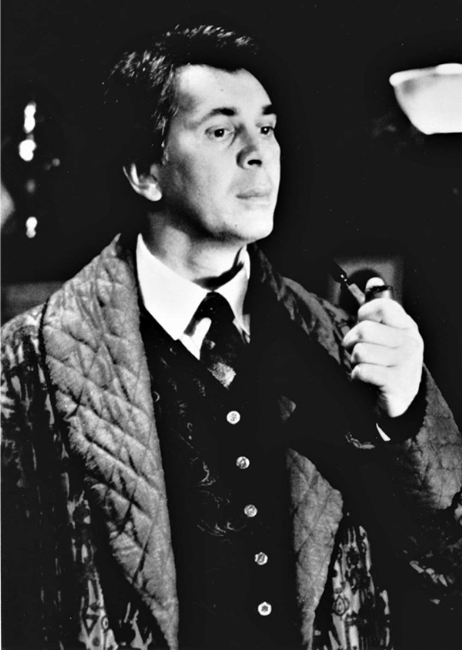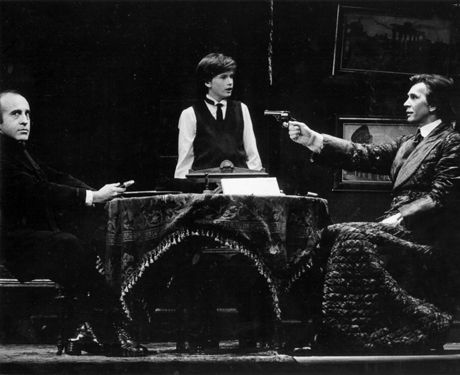Written for my Frank Langella Celebration! ❤
There are three types of Sherlockians in the world. If you don’t know what the word even means, then you’re clearly not one of them. Love you anyway!
You either a) are a Sherlock Holmes purist and only read the novels because no film adaptation has ever done the stories justice, b) don’t mind some changes to the concept so long as the general design of Sherlock Holmes remains intact, or c) are good with any and all adaptations and don’t care whether they match the books are not.
I, personally, fall into the 2nd category with occasional leanings either way depending on what it is I’m watching or reading.
My less forgiving Sherlock Holmes stance omits the idea of an older Holmes marrying a girl in her twenties like in Laurie R. King’s novels (despite liking the authoress as a person because she’s hilarious).
My more forgiving side is what we’re here to discuss right now.
Having just recently watched The Twelve Chairs from 1970 with Frank (review coming later!), there is one scene in that movie which set him up as being a potentially brilliant Holmes. He’s masquerading as a communist worker in the bureau of chairs and tables and is so convincingly strict, so coldly calculating, so delightfully rude that it just screamed “cast me as Sherlock Holmes” to the world.
The world obviously listened.
Frank Langella embodies a perfectly entertaining version of Sherlock Holmes that has always and will always make me smile. I can even forgive his Holmes falling in love . . . because he does, and to the beautiful, young Alice Faulkner who wishes only to protect him. Yes, I find that funny since I’m certain Holmes can protect himself with very little effort. But there you have it, true love can be so very blind. So the romantic in me is indulgent of Holmes and Alice’s love, simply because it is Frank Langella and I can never get enough of him as a romantic lead. You’ll either love or hate this aspect of the play.
The costuming is stunning as is the set-dressing. I fully believed I was watching scenes from actual Victorian, England, they were that good.
If you’re only accustomed to Frank in the movies, then you’re missing out. There are many nuances to stage acting that must be eradicated or toned down for film acting and so it’s intriguing to watch the stage version of Langella and discover just how very much of his acting style he had to change depending on whether he was on film or on the stage. It takes real talent to make an accomplishment of both venues.
Really, if you’re a diehard Langella fan, like me most of the time, then you’ll be forgiving of the little quips and quibbles in this play. Is it a faithful representation of Sherlock Holmes? No, it is idealized and humanizes him more than probably any other filmed version I’ve seen except for the steampunk movies of RDJ. But a little bit of humanizing never hurt anyone and I love to see Holmes revealing a softer side to Watson and to Alice, a side that many fans wish existed. This play isn’t for purists and that’s okay. It is, however, for Frank Langella fans, which is why I guiltily indulge in a viewing every couple of years or so, wishing that it was better film quality and dreaming that I will someday own an officially released DVD (not ever going to happen, I’m sure).
Should you care to try his charming version of Sherlock Holmes, visit the Youtube link below!




I've only seen this once. I think the memory of the romanticism of Holmes put me off it, Langella or no Langella. ;)
ReplyDeleteThey did overdo the ending, no doubts there. A Holmes waxing melodramatic over love is extremely odd and will never fit the character properly. But he's just so awesome through the rest of the story!
DeleteI will have to watch it again sometime. I remember liking it up to that point. ;)
DeleteYep, you should. And then you can groan through the sappy ending. ;)
DeleteI need more hours in my day!!! Some day, I will watch this.
ReplyDelete